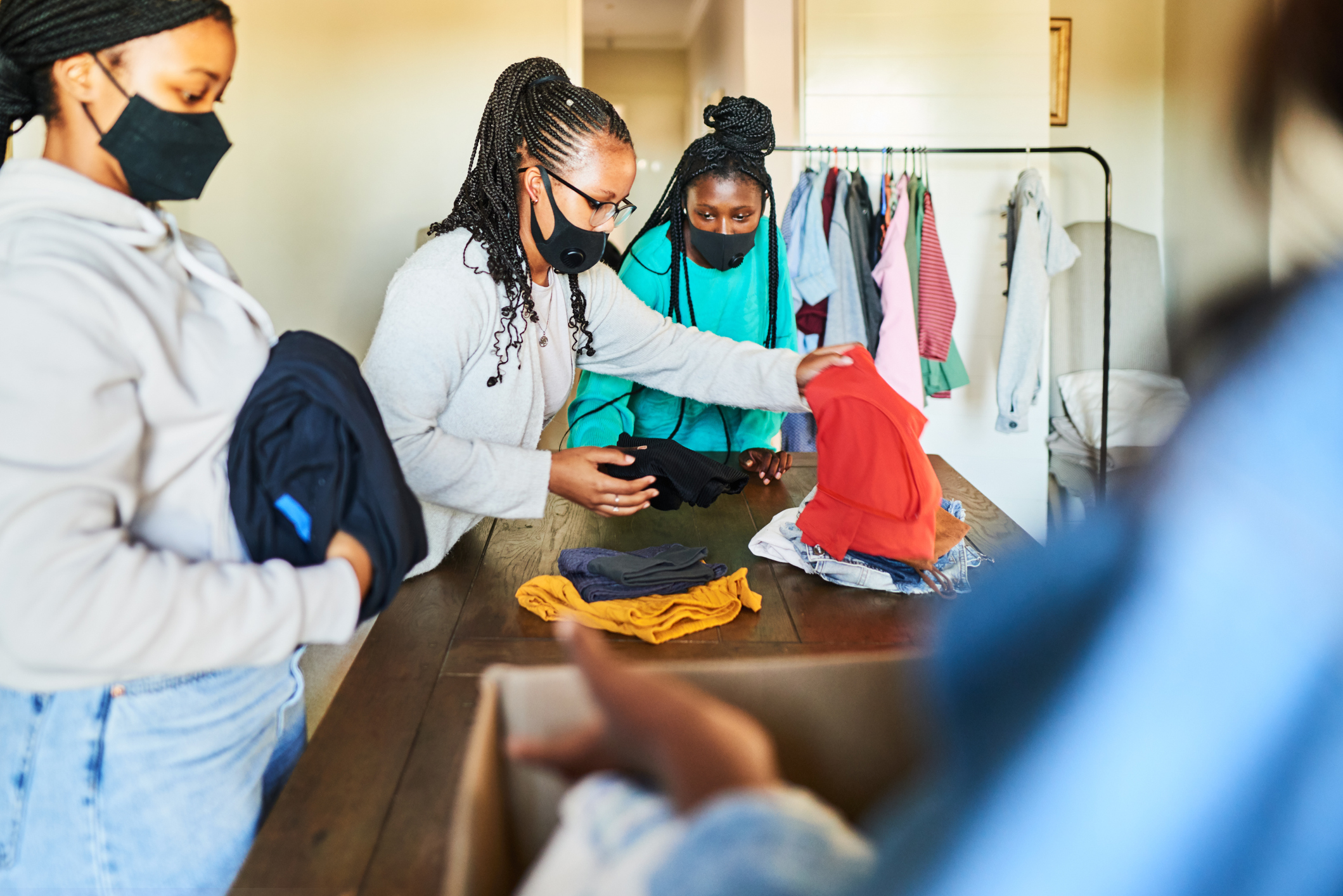Footwear is a major fashion staple and is often a target of consumerism due to the constant stream of new and trendy styles that hit the shelves. A major part of fast fashion, footwear is usually made from cheap materials, which results in them lasting short periods.
Footwear made from cheap materials and lasting short periods has detrimental environmental effects, as excessive waste can lead to increased amounts of carbon pollution.
To combat this, many brands are adopting sustainability in their footwear to safeguard the planet from environmental problems and to minimise their carbon footprint. Here at Loofes, we want to tell you about 5 sustainable footwear brands that are reducing their carbon footprints, which you should have in your wardrobe.
Table of contents
What is sustainable fashion?
Sustainable fashion is the concept that clothing and accessories are created to protect the environment. Materials that have been recycled and reused are often included in the production of sustainable fashion clothing.
Fashion brands reduce the need for natural resources by using sustainable practices to recycle and reuse materials when making garments. By doing this, companies help to reduce global water pollution and carbon emissions.
Sustainable fashion extends further than the material used in production, as companies are expected to manage critical social issues. Companies are expected to care for their workers by offering fair wages and adequate working conditions.
Clothing items such as T-shirts, jackets and jeans are some of the more popular types of sustainable clothing; however footwear is becoming increasingly favoured.
Sustainable footwear should have minimal negative impacts on the environment during the manufacturing process. Shoes are considered sustainable if made from recycled materials, such as tyres or plastic bottles, as new raw materials are not required.
Sustainable footwear is also often made from materials such as organic cotton, which has positive environmental impacts as it uses no chemicals or fertilisers in production.
Havaianas
Created in 1962 and inspired by Japanese zori sandals, Havaianas are owned by Brazilian company Alpargatas S.A. Havaianas are known for their unique and colourful styles, which has seen the company become a successful global brand.
Havaianas are ideal if you’re looking for a set of sustainable flip-flops to add to your wardrobe. Havaianas strive to make their products from recycled or reusable materials, and 97% of their sandals are produced with approximately 40% of reused rubber.
The company aims to invest in responsible, low-carbon materials which generate little waste, as well as prioritising processes, initiatives and technologies that help reduce the environmental impact.
Havaianas ensure that they are a part of the manufacturing process from beginning to end, ensuring their products are as sustainable as possible. The brand uses the principles of a circular economy to improve waste management to reduce landfill waste and create a sustainable product.
Loake
Founded in 1880 by brothers John, Thomas and William Loake, all Loake footwear is crafted from premium materials. Loake’s main aim is to make its products as sustainable as possible, ensuring that all production processes are renewable and efficient. Loake manufactures durable and high-quality products designed to be long-lasting.
The main material used in Loake’s footwear is fully biodegradable leather. Committed to avoiding using leather from endangered species, Loake only works with tanneries who are members of the Leather Working Group.
To help reduce its carbon footprint and enhance its energy efficiency, the company has invested in high-efficiency generators and fitted solar panels at its UK production site. All packaging is made from recycled materials, and the company only disposes of waste through globally recognised partners, aiming for zero waste to landfill.
Loake’s overall commitment of intent is to develop a renewable and sustainable product, reduce energy consumption and reduce packaging usage. The company is also dedicated to managing, monitoring and tracking waste disposal.
Birkenstock
Johann Adam Birkenstock founded the company in 1774 with the aim of creating a shoe to support the foot. Birkenstock footwear is perfect for those with flat feet or looking for a shoe to support your arch pain.
Devoted to reducing its carbon footprint, Birkenstock manufactures highly sustainable footwear. A high proportion of natural materials that Birkenstock uses in production come from sustainable sources.
One of the main raw materials the company uses is cork which has several benefits and is a major part of making their products sustainable. Cork has great cushioning, high elasticity and superb sound and heat insulation.
Natural latex, a renewable resource, is primarily used in binding the footbed, making Birkenstock’s products highly sustainable. Birkenstock uses water-based adhesives in 98% of its products whilst working to reduce the number of adhesives they use which contain solvents.
Timberland
Timberland was formerly known as the Abington Shoe Company, which was founded in 1933. Nathan Schwartz and his sons acquired the Abington Shoe Company through shares in 1952, before rebranding and incorporating it to the Timberland Company in 1978.
For a durable and environmentally friendly outdoor shoe, Timberland is the ideal choice and perfect for sustainability. Timberland strives to produce sustainable products, but they also have their workers in mind.
The company upholds their social responsibility by sponsoring its employees to serve their communities. To date, Timberland’s employees have served approximately 1.2 million hours of community service.
Timberland and its employees contribute heavily to creating a greener world, planting 10.3 million trees since 2001. Timberland aims to source all leather from tanneries that use responsible practices and use 100% organic or sustainably grown cotton wherever possible.
Every year, Timberland improves the sustainability of its products by using around 500,000 pounds of recycled rubber in its footwear. The equivalent of 345 million plastic bottles have been recycled and reused by Timberland to create sustainable footwear and backpacks.
Toms
Founded by Blake Mycoskie in 2006, Toms is known for its unique shoe design and One for One business model. The company aims to give away one pair of shoes for every pair sold, which has seen Toms give over 100 million pairs to date to those in need.
Toms has identified six essential areas to make long-term improvements to their products and upgrade their sustainability practices. The company is committed to increasing its B Corp score and reporting on its efforts to ensure they have a positive environmental impact.
Toms are constantly helping the environment through their environmentally friendly scheme, which sees one tree planted for every pair of Toms bought.
By 2025, Toms aims to source 100% sustainable cotton and establish carbon footprint reduction targets. Another company goal is to ensure that 80% of packaging is made from recyclable materials and 100% of packaging is sourced from sustainably managed forests.
The main goal of the company is to invest in their Earthwise products. Earthwise products are designed so that at least one component is made with a minimum percentage of sustainable materials.
All Toms products are made with 100% organic cotton, which has been grown without the use of toxic chemicals. To help reduce global landfill waste and water and energy pollution, product components must be manufactured with 50% recycled cotton.
To help uphold ethical and environmental responsibility, Toms has partnered with several organisations such as B Corp, Leather Working Group and Canopy. B Corp helps to ensure social and environmental performance is met, whilst Canopy ensures that all wood-based material is sourced from sustainably managed forests.
The Leather Working Group certifies leather manufacturers based on their environmental performance. Toms sources all leather from gold or silver-certified manufacturers.
Ted Baker
Founded by Ray Kelvin in Glasgow in 1988, Ted Baker is known for its premium clothing range of suits, shirts and dresses. The company is well known worldwide and has over 500 stores globally.
Ted Baker is committed to reducing their environmental impact by putting the fair and ethical treatment of the planet, product and people at the heart of everything they do. Ted Baker is partnered with several organisations to help reduce their carbon footprint.
To promote fair and equal workspaces, Ted Baker aims to introduce worker programmes across their supply chain by 2030. By 2025, Ted Baker targets 100% of workers to have access to channels which allows them to raise any concerns.
The company aims to double the number of sustainable materials sourced and ensure that 100% of polyester is recycled by 2030. Ted Baker intends to use only organic or recycled cotton by 2024 and to source all leather from tanneries certified by the Leather Working Group by 2025. Ted Baker pledges that all collections are to be manufactured with responsibly sourced materials by 2030.
Since 2019, the company has switched to 100% renewable energy at all UK sites and eliminated all laminated cardboard. All packaging is to be reusable, compostable or recyclable by 2025, and all e-commerce boxes are fully recyclable.
To help reduce its carbon footprint, Ted Baker’s goal is to have 100% net zero emissions within its operations by 2030 and implement a 46% reduction in supply chain emissions by 2030. Ted Baker donates all its leftover stock to reputable charities to reduce landfill waste and pollution.
Update your footwear collection with Loofes
The above brands are perfect for those looking to update their wardrobe to make it more sustainable with stylish footwear. Loofes stocks several styles for all occasions to match with any outfit.
Why not browse the latest Loake boots and shoes collection for more formal footwear? Toms footwear is perfect if you want a comfy fit or for more practical designs, Timberland’s boot selection can suit all your needs.








